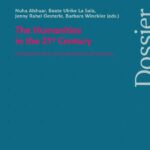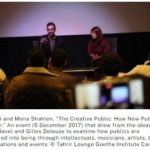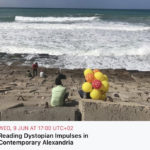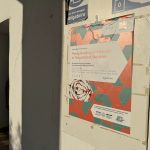Conference title: Competing Visions in the Muslim World: Rebuilding States and Reinvigorating Civil Societies
Venue: University of Sydney
Date: 14-16 August 2013
My presentation is at 10.30am, 15/Aug/2013, at the Professorial Board Room, The Quadrangle.
Redefining Alexandria: The Liberal, Salafi, and Muslim Brotherhood Struggle Over the Public Space (conference abstract)
This study seeks to understand the primacy of politics in the public space and the rise of a revolutionary space in Egypt’s second largest city of Alexandria. The city has experienced a long history of political struggles to brand the city in which the state led the destruction of the political by manipulating people and places and injecting external meaning rather than allowing a self-creation by Alexandrian society. The 2011 Revolution was in part an unintended consequence of that  branding. The dramatic birth of public space and politics in Alexandria was crystallised during the tumultuous but electrifying 18 days of the 2011 uprising – the net result was the birth of an invigorated political public. Individuals of differing ideological persuasions in the coastal city mustered the courage to interrupt their routine activities and break out of their private lives to assemble and produce a public space where freedom and plurality could materialise. However, this human togetherness would be temporal and would make way for Alexandria’s liberals, Salafists and Brotherhood supporters to battle for “control” of the public space and attempt to marginalise the other.
branding. The dramatic birth of public space and politics in Alexandria was crystallised during the tumultuous but electrifying 18 days of the 2011 uprising – the net result was the birth of an invigorated political public. Individuals of differing ideological persuasions in the coastal city mustered the courage to interrupt their routine activities and break out of their private lives to assemble and produce a public space where freedom and plurality could materialise. However, this human togetherness would be temporal and would make way for Alexandria’s liberals, Salafists and Brotherhood supporters to battle for “control” of the public space and attempt to marginalise the other.
Alexandria is a paradox given that it has swung from a cosmopolitan city in the first half of the twentieth century to the so-called Islamist bastion in the last few decades, to the extent of acting as the base for a resurgence of modern Salafist movements. The past two years have shown each political actor struggling to define the narratives, myths, and vision of the city. Moreover, the past two months in Egypt’s political trajectory have illustrated the unpredictability factor – the decisive character of human affairs – in polarising society and now further entrenching Islamist actors as they perceive an existential threat in the public space as well as further emboldening liberal actors due to the military coming down on their side.
Alexandria is chosen in large part because it is a political laboratory in how a city deals with a fraught process in which a series of contradictory events have happened, far from over, that have only served to illustrate the fragile space of appearance that is dependent and recreated when citizens are together. Yet just as disappointment, sense of injustice, nostalgia, disenchantment, power struggles, are the poisonous fruits of the birth of public space; there comes with it also disintegrative tendencies that can set in with the birth of public space and the events of June and July, Egypt’s people-driven coup, can also have a renewal of another possible beginning.






